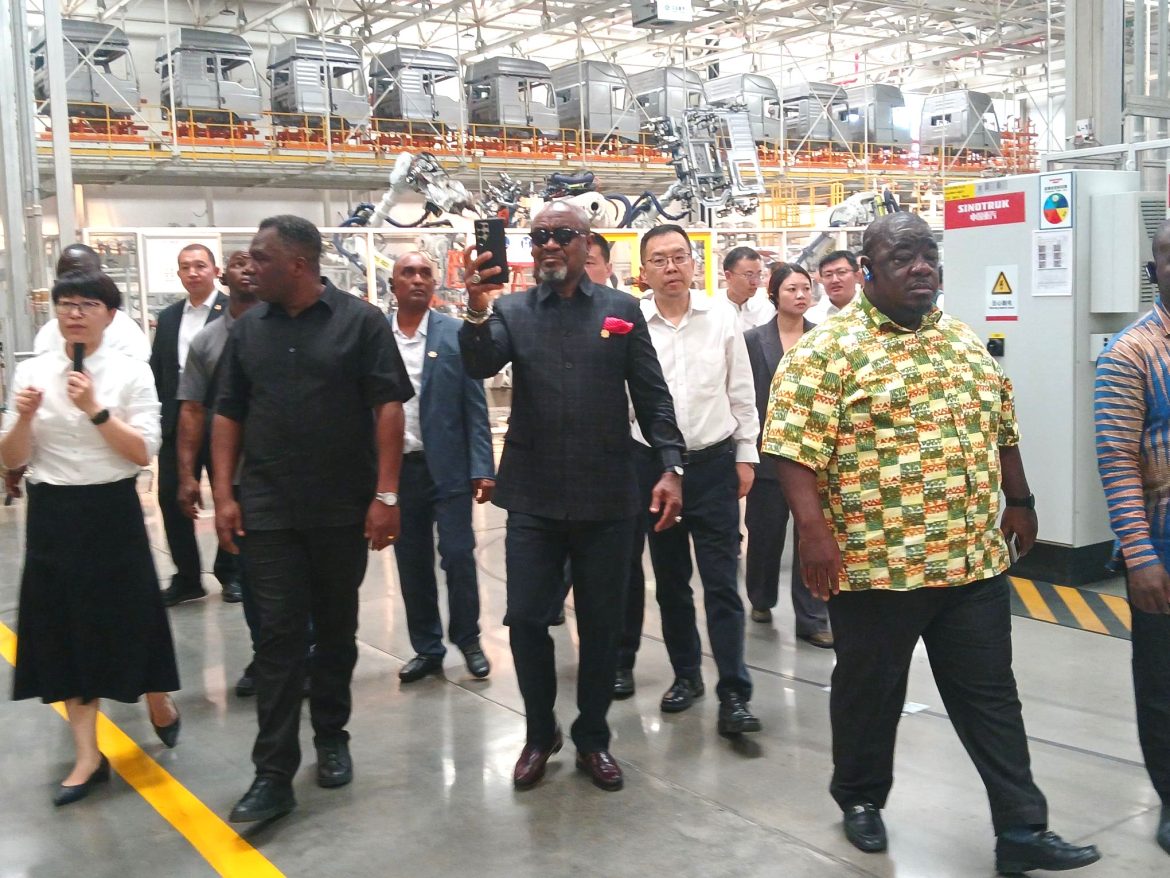Shandong, China – June 18, 2025 – Liberia’s Vice President Jeremiah Kpan Koung is scheduled to meet with Shandong Province Governor Zhou Naixiang today amid growing interest from the Chinese province in investing in Liberia’s development projects. The meeting follows Vice President Koung’s visit to the Qingdao Port, operated by the Shandong Port Group, a key player in discussions about potential investments in Liberia’s port infrastructure.
Though details remain limited, the talks signal a deepening relationship between Liberia and Shandong Province. Recently, Shandong Port Group has been in contact with Liberia’s National Port Authority Management, exploring ways to improve Liberia’s port facilities. This move aligns with Liberia’s broader goal to strengthen its infrastructure and enhance trade capacity.
The engagement between Liberian and Shandong officials comes as part of Vice President Koung’s ongoing visit to China, where he is inspecting three companies that have submitted unsolicited bids to supply Liberia with 285 earth-moving machines. These companies include Shantui, a subsidiary of the Shandong Heavy Industries Group, the Sany Group based in Changsha, and the ABK Group. Shandong Heavy Industries is a state-owned enterprise (SOE) owned by the Shandong Province government.
On Tuesday, June 17, 2025, Vice President Koung and his delegation toured the Shandong Heavy Industries facilities in Laiwa. They were warmly received and shown various production lines, including Sino Trucks, boats, and buses with seating capacities ranging from 50 to 75 passengers. The visit ended with lunch at the Laiwa Xueye Lake Conference Center, followed by a high-speed train journey to Jinan East and Qingdao North, where the delegation rested.
The Sinotruck Factory in Laiwa, part of the Jinan Truck Manufacturing Company, is a major pillar of Shandong Province’s industrial strategy. The Liberian government has set a budget ceiling of US$22 million for the purchase of earth-moving equipment and is carefully evaluating the bids from the three Chinese companies. Vice President Koung is leading a team that includes Public Works Minister Roland Gittens, Public Procurement and Concession Commission boss Mr. Scott, Assistant Finance Minister for Budget Sarah Mulbah, and General Services Agency Fleet Manager Roberts Wilson.
The delegation’s goal is to conduct a thorough physical inspection of the equipment, assessing quality, production capacity, and adherence to standards. Speaking during a visit to the Sany Group in Changsha on June 16, Vice President Koung emphasized the importance of value for money. “We want fair market value and not ambiguity in pricing,” he said. “We don’t want cheap items, but quality products at affordable prices. The involvement of middlemen and agents can increase costs, and while we understand businesspeople aim for profit, we want transparency and real market value.”
In line with the government’s procurement requirements, the suppliers must provide not only the equipment but also spare parts, training for Liberian technicians, and maintenance support for an agreed period. This comprehensive package is designed to ensure sustainability and operational efficiency once the machines arrive in Liberia.
Shandong Heavy Industry Group operates six major business sectors, including power systems, commercial vehicles, agriculture, construction equipment, intelligent logistics, and machinery. The company earns 40 percent of its revenue from China, another 40 percent from global sales of products manufactured in China, and the remaining 20 percent from global production sites.
At the conclusion of the tour, Vice President Koung expressed his admiration for China’s development journey. “Liberia is a small country, but we envy China,” he said. “The way you have lifted yourselves from poverty is truly enviable.” The visit to the Sinotruck Factory aimed to highlight the company’s potential to supply versatile trucks suited for construction, mining, and other sectors critical to Liberia’s infrastructure growth.
This visit reflects Liberia’s commitment to strengthening international partnerships and sourcing quality equipment that supports its development goals. The final decisions on procurement and investment will have significant implications for Liberia’s infrastructure and economic progress in the coming years.
